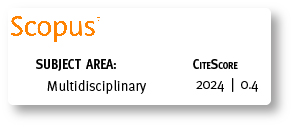A case study of learning styles of older adults attending an English course
DOI:
https://doi.org/10.18537/mskn.08.02.01Keywords:
older adults, learning styles, lifelong learning, EFLAbstract
The education of older adults is of special interest to instructors and researchers involved in lifelong education. There is not an overabundance of research in the area of the learning styles of this age group, and the exploration of it might produce significant insights about materials and methodologies that may meet their learning needs successfully. This study analyses the learning styles preferred by a group of older adults in the city of Cuenca, Ecuador. Sixty-six participants (with an average age of 71.05) taking English as a foreign language course responded to the 44-item questionnaire on learning styles by Felder & Soloman (1997). The information of the respondents using statistical and correlation analyses permitted to define the prevailing learning styles and its relation with the sociodemographic characteristics of the participants. The results indicate that older adults express preference for the sensing, active, visual, and sequential styles, being people who tend to work better with facts rather than theories. They also like teamwork, prefer images to sounds, and are methodical in their learning process. In addition, the results reveal the positive correlation of the variables age, level of English, and level of education and occupation before retirement. The two last-mentioned were found to be determinant in the preferences of the participants.
Downloads
Metrics
References
Abbasian, R., Khajan, Y., Rahman, S. (2014). Field of study, learning styles, and languages learning strategies of University students: are they any relations? Innovation in Language Learning and Teaching, (10)3, 255-271.
Alecu, I. (2011). Personality and learning styles. Economics, Management, and Financial Markets, 6(1), 1096-1103.
Arias, W. L., Zerraga, J., Justo, O. (2014). Estilos de aprendizaje y metacognición en estudiantes de psicología de Arequipa. Liberabit, 20(2), 267-279.
Baleghizadeh, S., Shayegui, R. (2014). The relationship between perceptual learning style preferences and Multiple Intelligences among Iranian EFL learners. Innovation in Language Learning and Teaching, (51)3, 255-264.
Becher, T. (2001). Tribus y territorios académicos. La indagación intelectual y las culturas de las disciplinas. Barcelona: Gedisa.
Biggs, J. (2001). Enhancing learning: A matter of style or approach? In: Sternberg, R. J., Zhang, L. F. (Eds.). Perspectives on Thinking, Learning and Cognitive Styles (pp. 73-102). London, UK: Lawrence Erlbaum Associates.
Bissland, V. (2013). Older adults’ voices: an exploration of preferred learning and communication styles and their fit with emerging insights from neuroscience. International Journal of Education and Aging, 3(1), 43-62.
Bista, K. (2008). Age as an affective factor in second language acquisition. English for Specific Purposes World, 21(7), 1-15.
Brown, H. (1994). Principles of language learning and teaching. (3rd ed.). Englewood Cliffs, NJ: Prentice Hall Regents.
Council for Cultural Cooperation. (2001). Common European Framework for Languages: Learning, Teaching, Assessment. Strasbourg.
Dorsey, O. L., Pierson, M. J. (1984). A descriptive study of adult learning styles in a nontraditional educational program. Lifelong learning: An Omnibus of Practice and Research, 7(8), 8-11.
Dunn, K., Dunn, R., Price, G. (1982). Learning style inventory. Lawrence, KS: Price Systems.
Dunn, R., Dunn, K. (1992). Teaching elementary students through their individual learning styles. Boston: Allyn & Bacon.
Dunn, R., Griggs, S. (1998). Learning styles: Link between teaching and learning. In: Dunn, R., Griggs, S. (Eds.). Learning styles and the nursing profession (pp. 11-23). New York: NLN Press.
Dunn, R., Rundel, S. M., Burke, K. (2007). ELSA, Elementary learning style assessment. Research and implementation manual. (Manual) Retrieved from https://spf665instructionaldesignassess.wikispaces.com/file/view/Elementary+Learning+Styles+Research_Manual.pdf
Estévez, F., Webster, F., Mora, F., García, J., Cisneros, V., Cevallos, A. (2016). Impacto del Aprendizaje del Inglés Sobre los Procesos Cognitivos en Adultos Mayores. Un Estudio Preliminar en Cuenca. Revista Ecuatoriana de Neurología, 24(1-3), 28-32.
Felder, R., Silverman, L. (1988). Learning and teaching styles in engineering education. Engineering Education, 78(7), 674-681.
Felder, R., Soloman, B. (1997). Index of learning styles questionnaire. Questionnaire retrieved from https://www.webtools.ncsu.edu/learningstyles/
Felder, R., Spurlin, J. (2005). Applications, reliability, and validity of the index of learning styles. International Journal of Engineering Education, 21(1), 103-112.
Feldman, J., Monteserin, A., Amandi, A. (2014). Automatic detection of learning styles: state of the art. Artificial Intelligence Review, (44)2,157-186.
Freiberg, A., Fernández, M. (2015). Estilos de aprendizaje en estudiantes universitarios ingresantes y avanzados de Buenos Aires. Liberabit, 21(1), 71-79.
Gardner, H. (1987). Symposium on the theory of multiple intelligences. In: Perkins, D. N., Lockhead, J., Bishop, J. C. (Eds.). Thinking: The Second International Conference (pp. 77-101). Hillsdale, NJ: Erlbaum.
Gómez, M. (2008). El aprendizaje en la tercera edad. Una aproximación en la clase de ELE: Los aprendientes mayores japoneses en el Instituto Cervantes de Tokio. Master’s degree thesis. Nebrija, España: Universidad Nebrija.
Guild, P., Garger, S. (1998). Marching to different drummers. (2nd ed.). Alexandria, VA: Association for Supervision and Curriculum Development.
Hiemstra, R. (1993). Older women’s ways of learning: Tapping the full potential. Paper presented at the conference “The Enduring Spirit: Women as They Age.” Lincoln, NE: University of Nebraska.
Honey, P., Mumford, A. (1986). Using our learning styles. Maidenhead, UK: Peter Honey Publications Ltd.
Juárez-Muñoz, I., Gómez-Negrete, A., Varela-Ruiz, M., Mejía-Aranguré, J., Mercado-Arellano, J., Sciandra-Rico, M., Matute-González, M. (2013). Estilos de aprendizaje en médicos residentes y sus profesores en un hospital de pediatría. Revista Médica del Instituto Mexicano de Seguridad Social, 51(6), 614-619.
Jung, C. (1921). Psychological types. Abingdon, UK: Routledge.
Karthigeyan, K., Nirmala, K. (2013). Learning style preference of English language learners. Educationa Confab, 2(1), 134-140.
Kazu, I. (2009). The effect of learning styles on education and the teaching process. Journal of Social Sciences, 5(2), 85-94.
Keefe, J. W. (1979). Learning style: An overview. In: Keefe, J. (Ed.). Student learning styles: Diagnosing and prescribing programs (pp. 1-17). Reston, VA: National Association of Secondary School Principals.
Keir, G. E. (1987). Learning styles of older adults and the channels for dissemination of clothing information. PhD thesis. Lincoln, NE: University of Nebraska.
Kharb, P., Samanta, P., Jindal, M., Singh, V. (2013). The learning styles and the preferred teaching-learning strategies of first year medical students. Journal of Clinical and Diagnostic Research, 7(6), 1089-1092.
Kim, T. Y., Kim, Y. K. (2014). Elderly Korean learners’ participation in English learning through lifelong education: Focusing on motivation and demotivation. Educational Gerontology, 41(2), 120-135.
Kolb, D. A. (1981). Learning styles and disciplinary differences. In: Chickering, A. (Ed.). The Modern American College (p. 232-255). San Francisco: Jossey-Bass.
Kolb, D. A. (1984). Experiential learning: Experience at the Source of Learning and Development. New Jersey: Prentice Hall.
Kolb, A. Y., Kolb, D. A. (2005). Learning styles and learning spaces: Enhancing experiential learning in higher education. Academy of Management Learning & Education, 4(2), 193-212.
Major, C. A. (2014). The effect of age on second language acquisition in older adults. Master of Arts Thesis. Department of Linguistics and English Language, Brigham Young University.
Martín-García, A. V. (2003). Estilos de aprendizaje en la vejez. Un estudio a la luz del aprendizaje experiencial. Revista Española de Geriatría y Gerontología, 38(5), 193-200.
Mathews, M., Yoong, T. (2014). Towards aging well: Aspirations, challenges, and initiatives. Singapore: National University of Singapore.
Mickler, M. L., Zippert, C. P. (1987). Teaching strategies based on learning styles of adult students. Community/Junior College Quarterly, 11, 33-37.
Miglietti, C. L., Strange, C.C. (2002). Learning styles, classroom preferences, teaching styles, and remedial courses outcomes for underprepared adults at a two-year college. Community College Review, 26(1), 1-19.
Moussa, N. (2014). The Importance of Learning Styles in Education. Institute for Learning Styles Journal, 1, 19-27.
Nogales, F. (2001). Estrategias educativas. Barcelona: España.
Pitts, J. (2009). Identifying and using a teacher friendly learning-styles instrument. The Clearing House, (82)5, 225-231.
Popescu, E. (2009). Diagnosing students’ learning style in an educational hypermedia system. In: Cognitive and Emotional Processes in Web-Based Education: Integrating Human Factors and Personalization. Advances in Web-Based Learning Book Series, (p. 187-208). Hershey, PA: IGI Global.
Price, G., Griggs, S. (1985). Counseling college students through their individual learning styles. Journal of Counseling and Developing, (64)3, 202-205.
Reid, J. (1987). The learning style preferences of ESL students. TESOL Quarterly, 21, 87-111.
Roberts, L. N. (2013). The relationship between learning styles and learning outcomes for adults in an informal educational setting. Doctoral thesis. Ann Arbor, MI: ProQuest LLC.
Sims, R., Sims, S. (1995). The importance of learning styles: understanding the implications for learning, course design, and education. Westport, CT: Greenwood.
Truluck, J., Courtenay, B. (1999). Learning styles preferences among older adults. Educational Gerontology, 25(3), 221-236.
Tuan, L. T. (2011). EFL learners’ learning styles and their attributes. Mediterranean Journal of Social Sciences, 2(2), 299-320.
Van Wynen, E. (2001). A key to successful aging: Learning-style patterns of older adults. Journal of Gerontological Nursing, 27(9), 6-15.
Ventura, A. C. (2010). Perfil de estilos de aprendizaje de estudiantes de psicología en distintos niveles académicos. Master’s degree dissertation. Rosario, Argentina: Universidad pública de la ciudad de Rosario - Argentina.
Downloads
Published
How to Cite
Issue
Section
License
Copyright © Autors. Creative Commons Attribution 4.0 License. for any article submitted from 6 June 2017 onwards. For manuscripts submitted before, the CC BY 3.0 License was used.
![]()
You are free to:
 |
Share — copy and redistribute the material in any medium or format |
 |
Adapt — remix, transform, and build upon the material for any purpose, even commercially. |
Under the following conditions:
 |
Attribution — You must give appropriate credit, provide a link to the licence, and indicate if changes were made. You may do so in any reasonable manner, but not in any way that suggests the licenser endorses you or your use. |
| No additional restrictions — You may not apply legal terms or technological measures that legally restrict others from doing anything the licence permits. |









